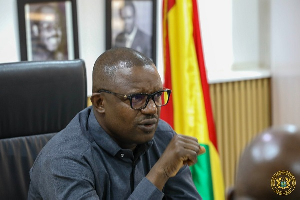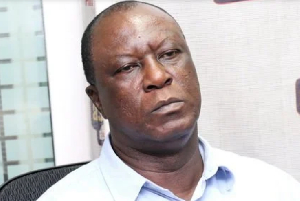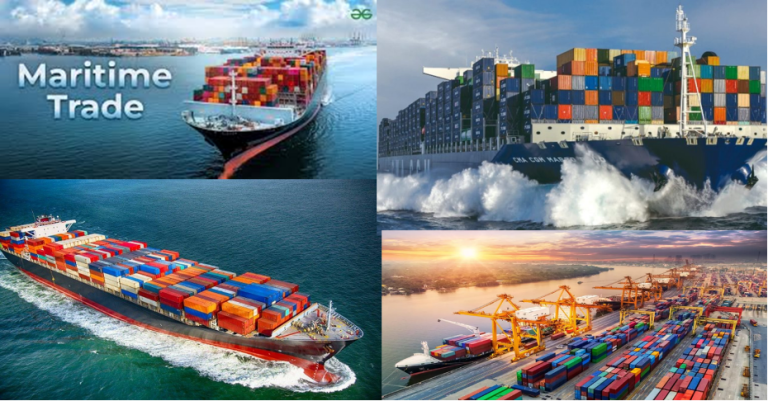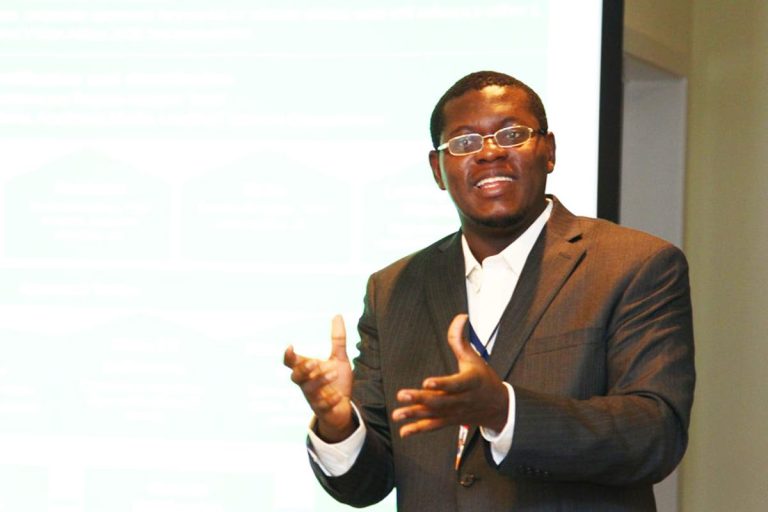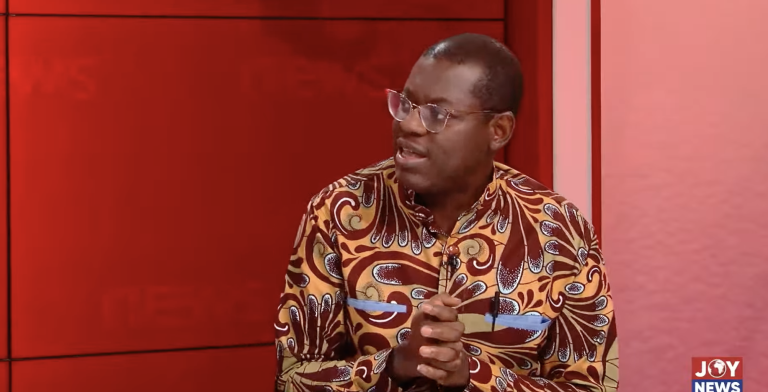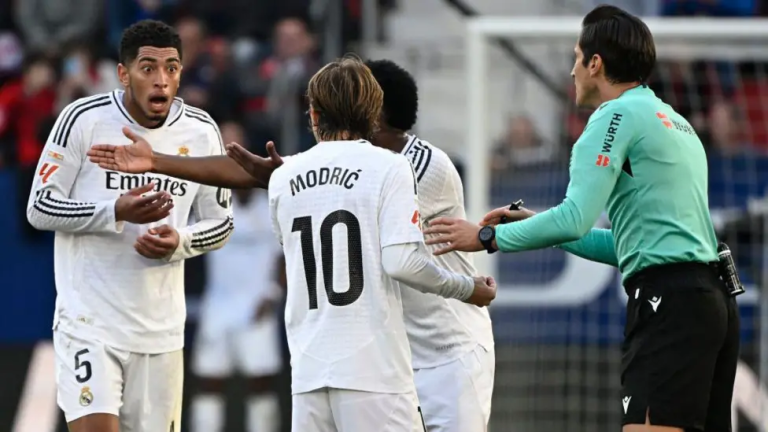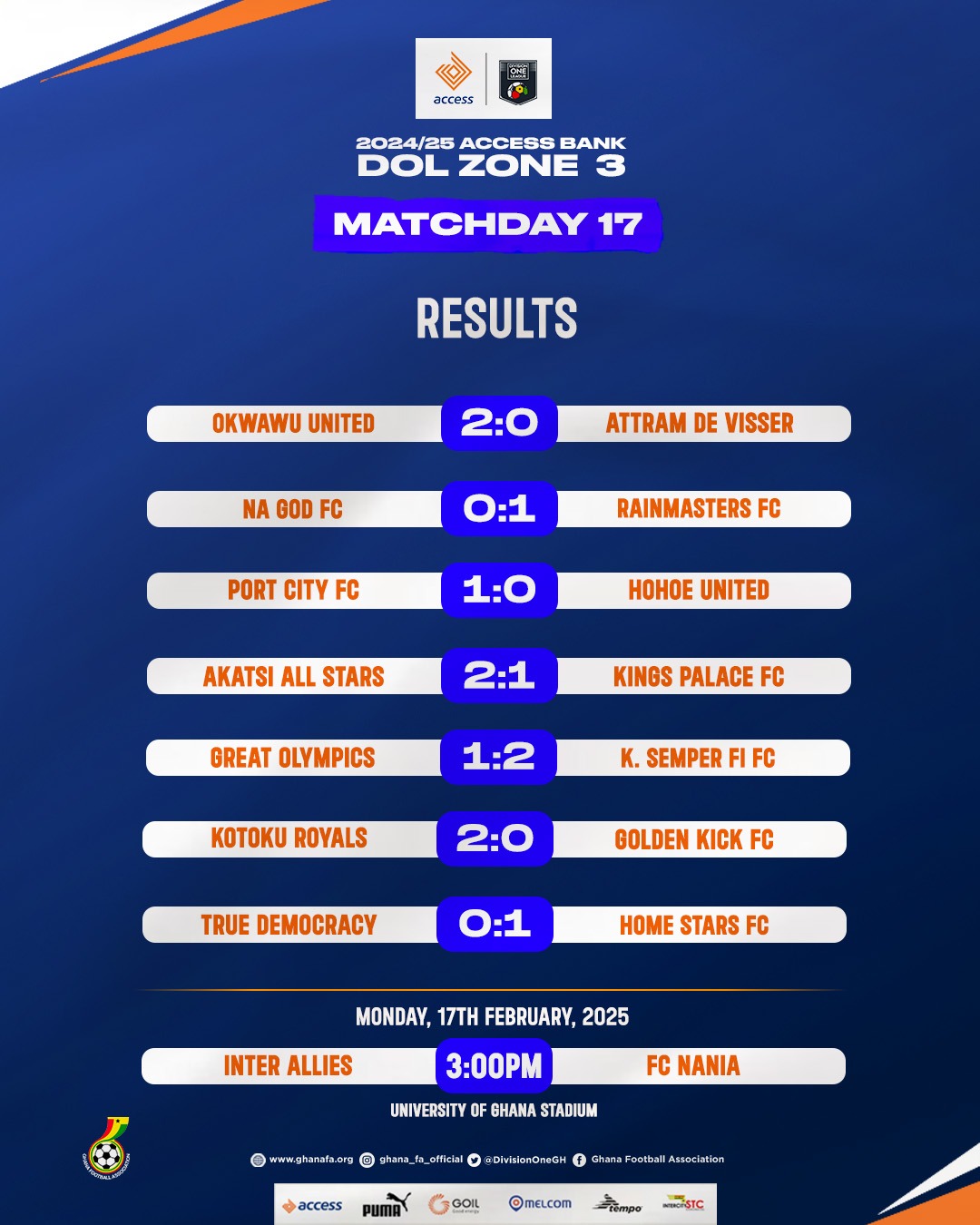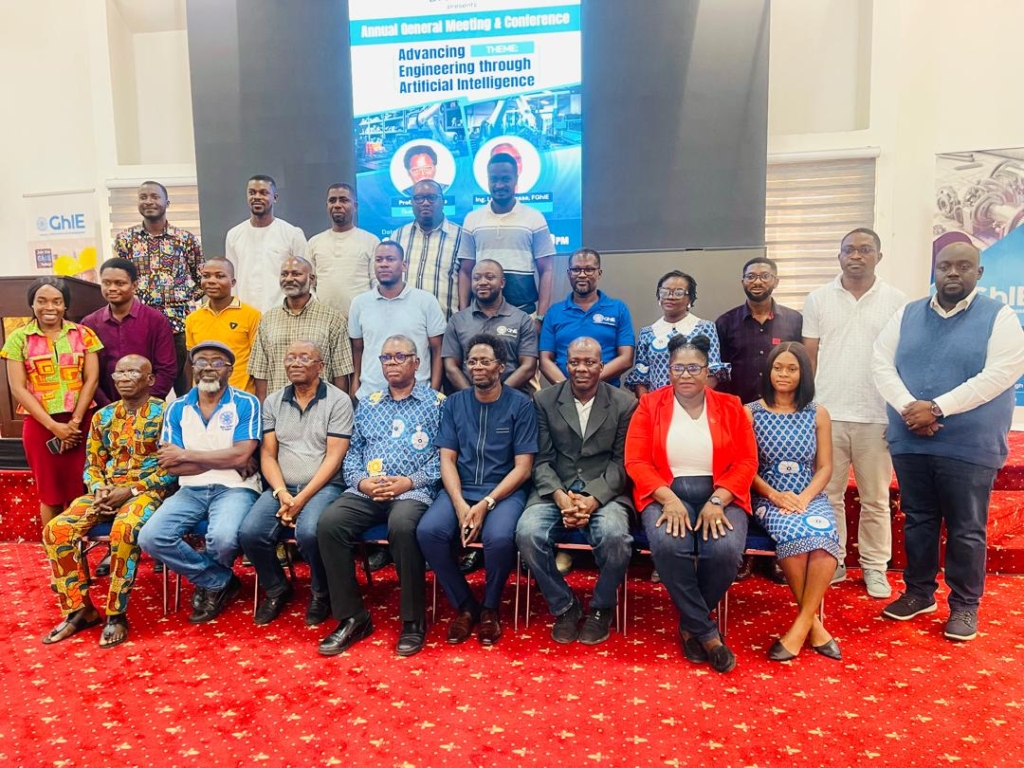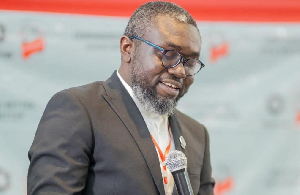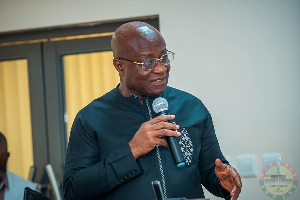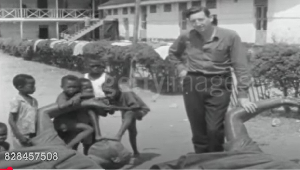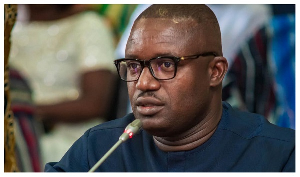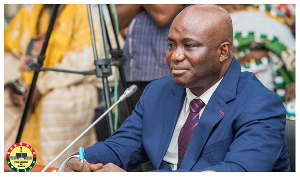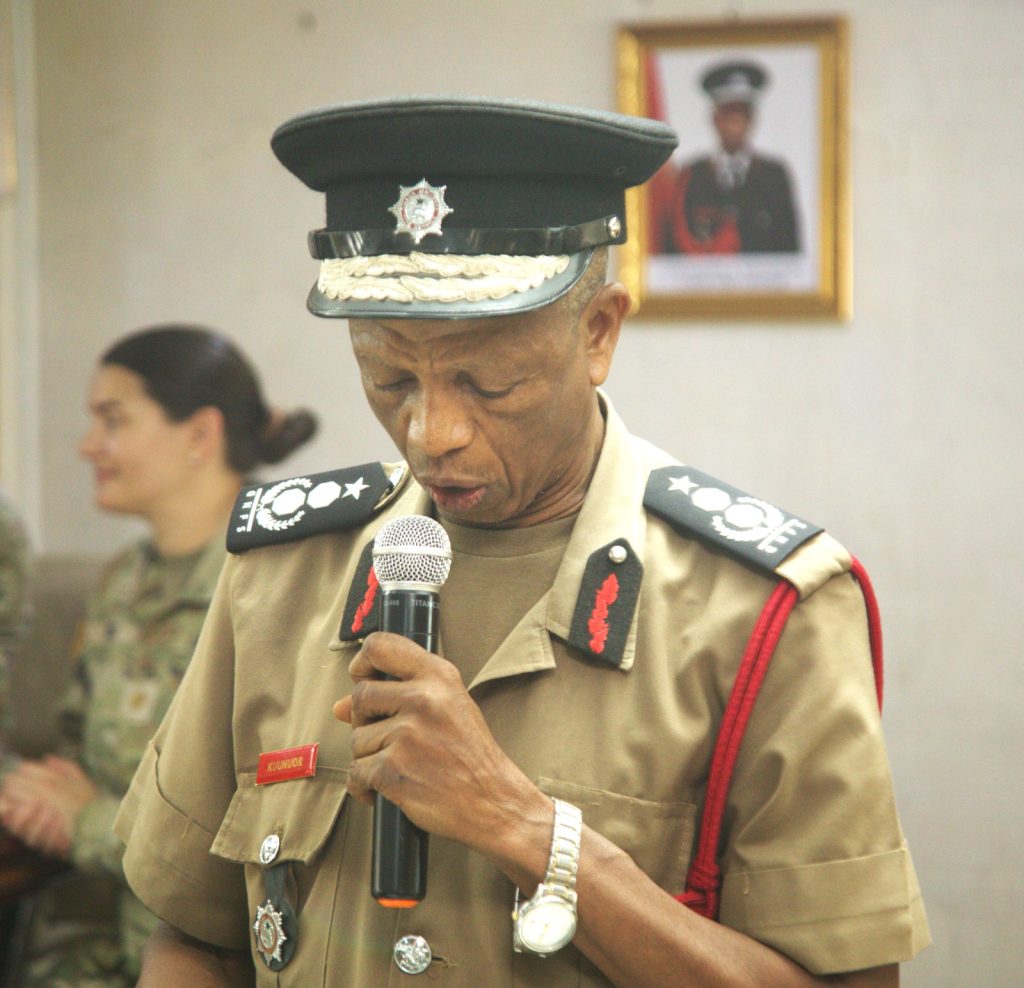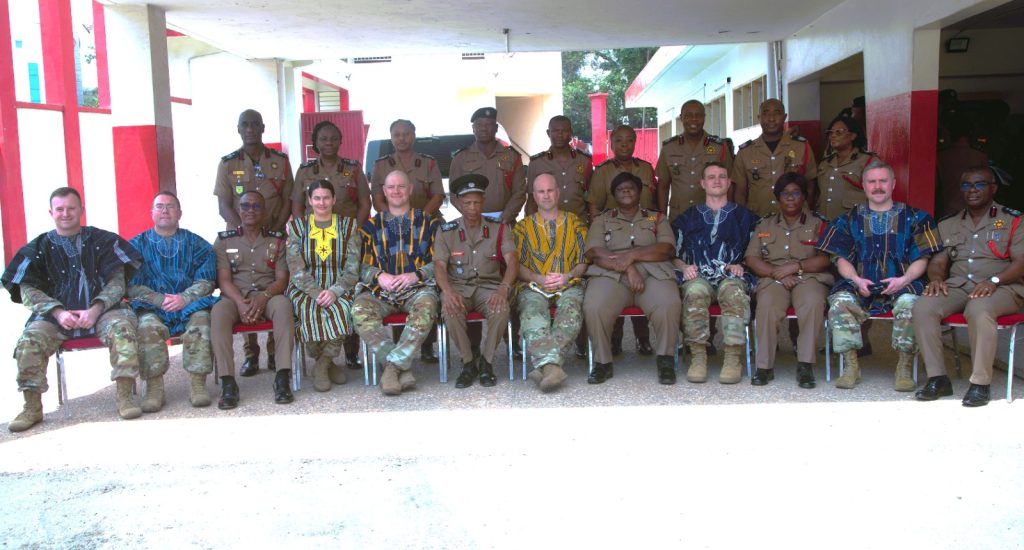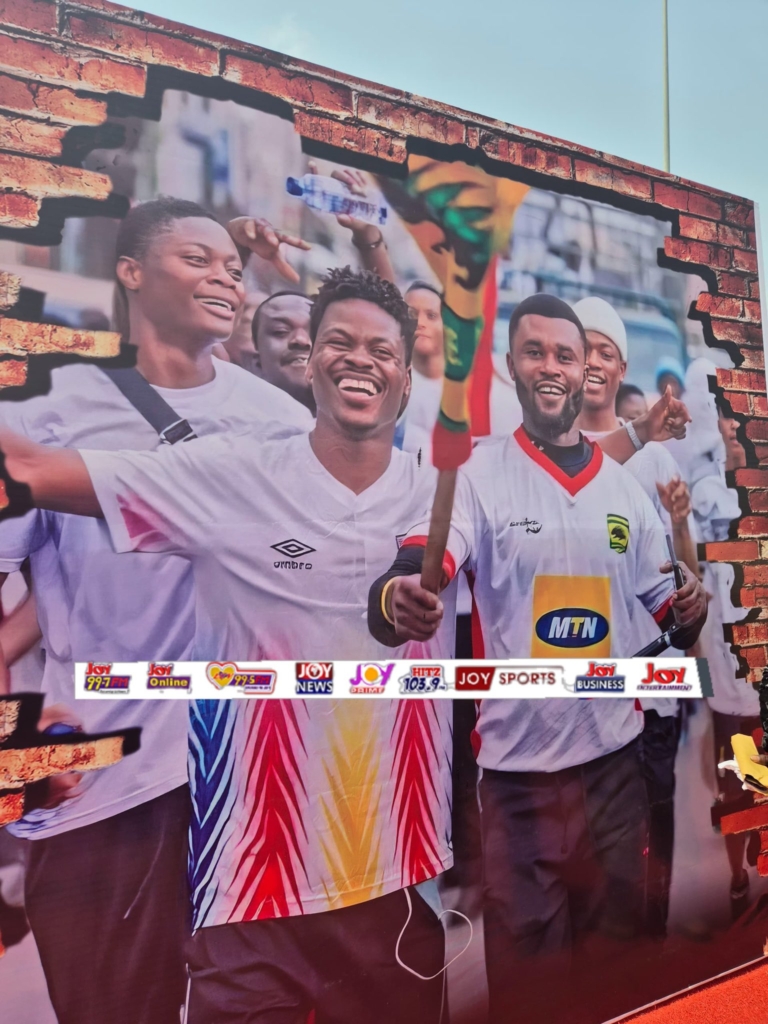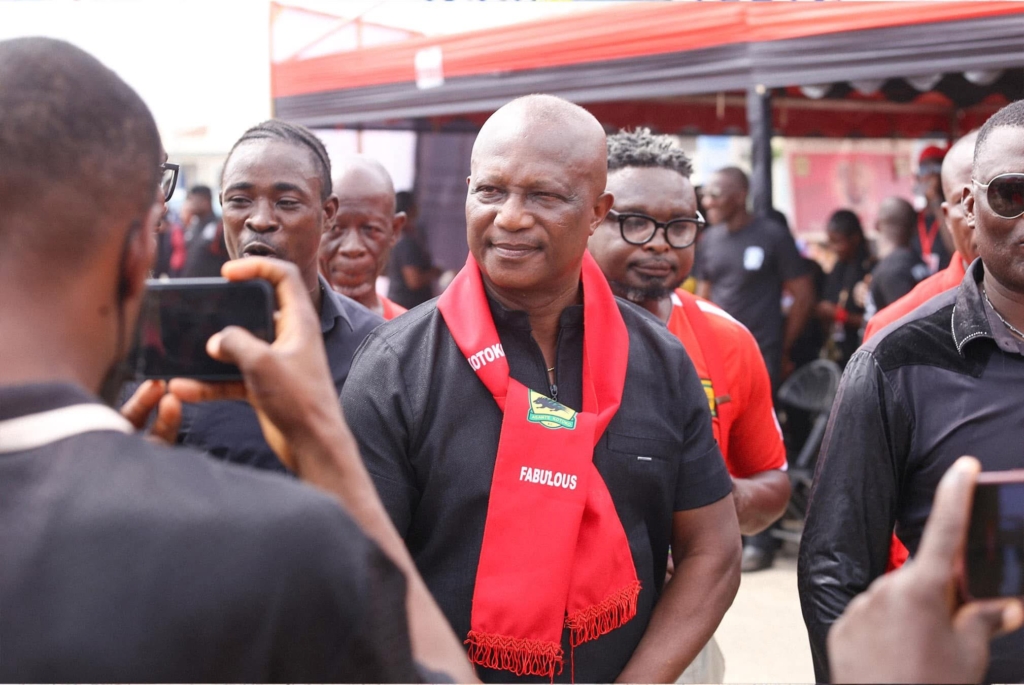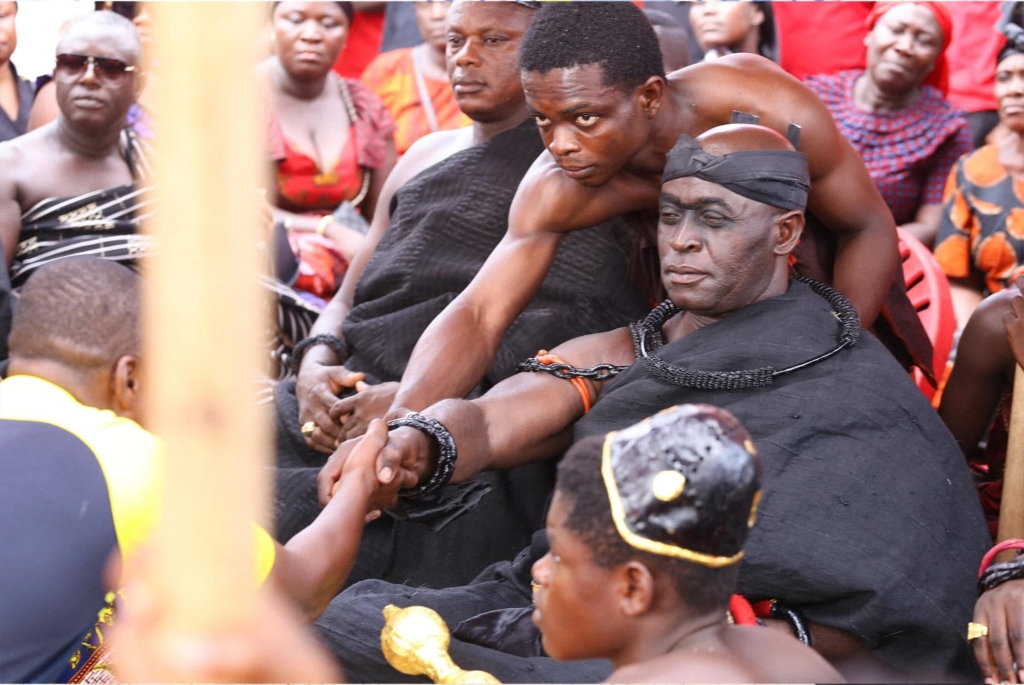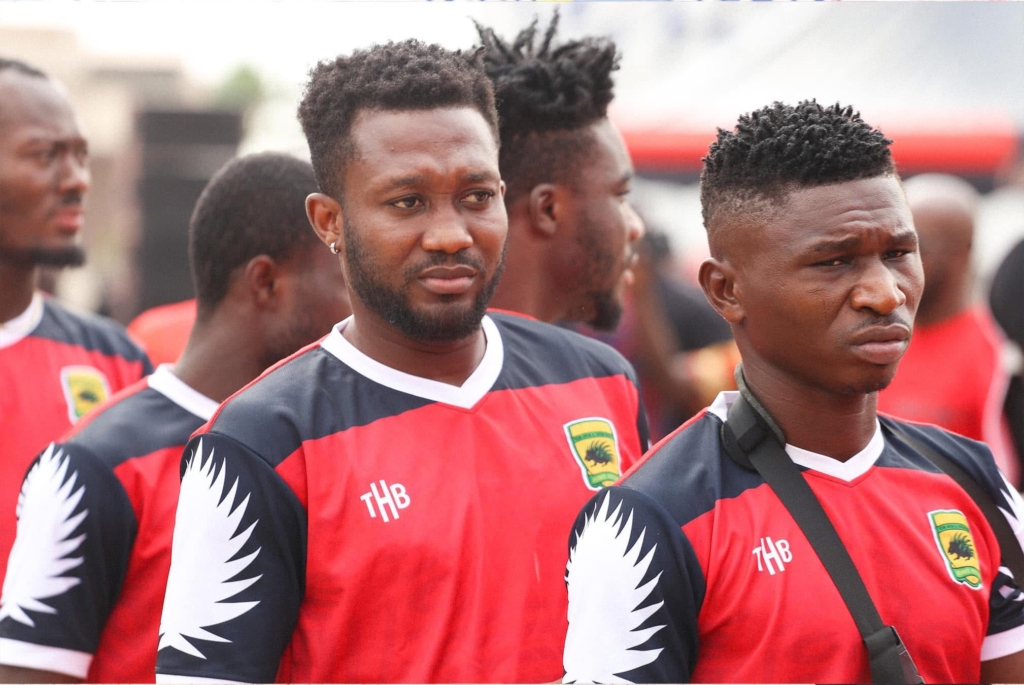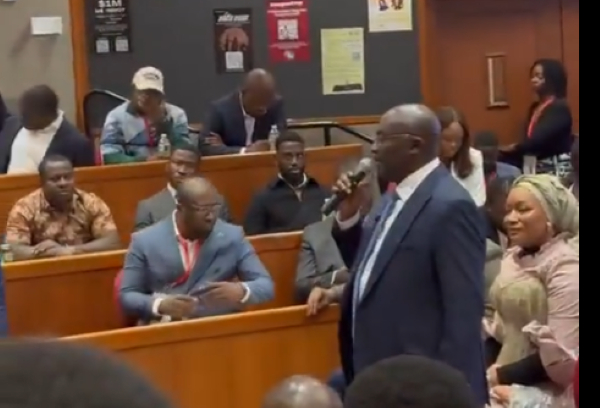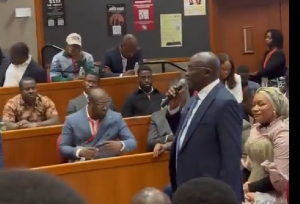Ghana’s maritime sector is rapidly emerging as a pivotal force in regional trade and economic transformation. Strategically positioned along the Gulf of Guinea, Ghana’s 560-kilometer coastline provides a crucial access point to global shipping lanes, making the country a gateway for commerce in West Africa. For decades, Ghana has played a central role in facilitating trade for its domestic economy and its landlocked neighbours—Burkina Faso, Mali, and Niger—through its two main ports, Tema and Takoradi.
However, with recent geopolitical shifts, infrastructure investments, and global economic realignments, Ghana’s maritime sector is poised to become more than just a regional trade facilitator—it has the potential to be a dominant maritime logistics hub for all of West Africa.
Tema Port, Ghana’s largest and most advanced seaport, has undergone significant modernization in the past decade. Following its $1.5 billion expansion in 2020, the port now boasts deep-water terminals capable of accommodating Panamax and Post-Panamax vessels, automated cargo handling systems, and enhanced transhipment facilities. These upgrades have positioned Tema as one of West Africa’s most competitive ports, with an annual throughput capacity exceeding 1.5 million twenty-foot equivalent units (TEUs). Similarly, Takoradi Port, Ghana’s oldest commercial port, has expanded its operations beyond traditional bulk exports such as bauxite, manganese, and crude oil to serve as a key logistics hub for the country’s growing oil and gas sector. With further plans to develop an integrated shipyard, offshore oil services, and cruise tourism facilities, Takoradi is undergoing a strategic transformation to serve both industrial and commercial maritime needs.
Beyond its existing port infrastructure, Ghana’s maritime ambitions are strengthened by Africa’s shifting demographic and economic landscape. According to the United Nations Department of Economic and Social Affairs (2022), Sub-Saharan Africa is expected to reach a population of over 2.1 billion people by 2050, making it one of the fastest-growing regions in the world. This massive population boom will lead to increased industrial activity, consumer demand, and urbanization, requiring robust trade infrastructure to facilitate the movement of goods and services across the continent. The World Bank (2023) estimates that by 2035, Africa’s urban population will increase by an additional 450 million people, reinforcing the urgent need for expanded trade corridors and more efficient logistics networks. As these trends accelerate, Ghana’s ports, shipping services, and maritime policies must evolve to meet the growing demands of intra-African and international trade.
Moreover, Ghana’s strategic importance in regional trade has become even more pronounced in light of recent geopolitical shifts. The formation of the Alliance of Sahel States (ASS) by Burkina Faso, Mali, and Niger, and Togo’s increasing alignment with this bloc, has raised concerns about regional trade route realignments. With neighboring ports like Lomé and Abidjan aggressively competing for transshipment cargo and Sahelian trade flows, Ghana must implement strategic policy and infrastructure measures to ensure that it retains and expands its influence as a preferred transit and logistics hub for landlocked countries.
At the same time, Ghana is uniquely positioned to attract large-scale investments in maritime infrastructure through global funding programs such as the IPADA Initiative caption “from slave ships to cruise ships”, which has committed $9 billion to cruise ship construction in Nigeria and maritime development in Africa. These funds, combined with diaspora direct investments (DDIs) and public-private partnerships (PPPs), provide Ghana with a critical opportunity to develop its shipbuilding industry, establish modern logistics hubs, and upgrade its port technology to align with global shipping standards.
Additionally, Ghana’s maritime potential aligns with broader continental economic integration efforts under the African Continental Free Trade Area (AfCFTA). The United Nations Economic Commission for Africa (UNECA, 2023) projects that AfCFTA could boost intra-African trade by 52% by 2030, provided that essential trade infrastructure—including efficient ports, seamless customs processes, and improved connectivity—is in place. As the host country of AfCFTA’s Secretariat, Ghana is well-positioned to leverage its maritime sector as a cornerstone of Africa’s trade liberalization agenda, attracting foreign direct investment (FDI) and strengthening its logistics capabilities for regional and international commerce. With these demographic shifts, geopolitical changes, and economic growth drivers shaping the future of maritime trade in Africa, Ghana must not only accommodate current trade flows but also proactively plan for the massive surge in cargo volumes and supply chain activities expected in the coming decades. The opportunity is clear: Ghana can emerge as the leading maritime logistics hub in West Africa by leveraging its deep-water ports, expanding multimodal transport networks, and modernizing its shipping and logistics sector.
- Strategic Advantages: Ghana’s Potential as a Maritime Hub
Ghana holds a strategic position in the evolving trade landscape of West Africa, and its potential as a regional maritime logistics hub is underpinned by multiple factors. The country’s geographical location, stable political environment, expanding port infrastructure, and commitment to trade facilitation give it a significant advantage over its competitors. As trade patterns shift and new geopolitical alliances emerge, Ghana’s ability to leverage these factors will determine its success in becoming the premier gateway for West African trade.
- Geographical and Logistical Advantages
One of Ghana’s most significant strengths is its central location along the West African coast. Positioned between Côte d’Ivoire to the west and Togo to the east, Ghana provides an ideal transit point for goods moving between landlocked Sahelian nations—Mali, Burkina Faso, and Niger—and international markets. Tema and Takoradi Ports already serve as key transit hubs for these countries, handling substantial volumes of imports, including machinery, petroleum, and food supplies. The World Bank (2023) identifies Ghana as one of the top transit trade routes for the Sahel, processing an estimated 3.2 million metric tons of transit cargo annually. Beyond its immediate coastal advantage, Ghana also boasts an expanding road and rail network connecting its ports to the hinterlands. The Ghanaian government has made major investments in upgrading the Tema-Ouagadougou corridor, a crucial trade route linking Ghana’s main port to Burkina Faso’s capital. Additionally, the ongoing railway expansion from Tema to Mpakadan, intended to extend further into Burkina Faso, is set to further enhance Ghana’s appeal as a cost-effective and efficient trade route.
- The Logistics Performance Index (LPI) and Ghana’s Competitive Edge
Ghana’s logistics competitiveness is reflected in its 2023 Logistics Performance Index (LPI) ranking. According to the World Bank (2023), Ghana ranks 5th in Sub-Saharan Africa, behind South Africa, Kenya, Nigeria, and Côte d’Ivoire, with a score of 2.68 out of 5. The LPI evaluates key factors such as customs efficiency, infrastructure quality, international shipments, logistics competence, tracking and tracing, and timeliness. While Ghana’s ranking demonstrates relative strength in regional logistics, there remains room for improvement. The country scored highly on customs clearance efficiency and logistics competence, highlighting the effectiveness of its port operations and trade facilitation programs. However, infrastructure quality remains a challenge, particularly in terms of hinterland connectivity and the need for expanded warehousing, digital logistics solutions, and port automation. Strengthening these areas could significantly improve Ghana’s LPI ranking and reinforce its position as a top logistics hub in West Africa.
- The Geopolitical Shift: Togo’s Alignment with the Sahel and Its Implications
A major development in West Africa’s geopolitical landscape is Togo’s recent announcement to align with the Sahel nations—Mali, Niger, and Burkina Faso—under the newly formed Alliance of Sahel States (ASS). This alliance represents a breakaway from ECOWAS, as the Sahel countries move toward greater self-reliance and alternative trade partnerships. Togo’s shift has significant implications for regional trade and Ghana’s maritime aspirations. Lomé, the capital of Togo, is home to the Port of Lomé, which has traditionally been one of Ghana’s fiercest competitors in the transshipment and transit cargo market. The port, operated by the Lomé Container Terminal (LCT) and Bolloré Ports, has aggressively positioned itself as a regional hub, benefiting from fewer customs bottlenecks, competitive tariffs, and modernized infrastructure. However, with Togo’s increasing alignment with the Sahel, there is growing uncertainty about its future trade policies and regional connectivity. This shift presents an opportunity for Ghana to consolidate its position as the preferred maritime gateway for Sahelian trade. As Mali, Niger, and Burkina Faso reevaluate their trade routes, Ghana can offer a politically stable, ECOWAS-compliant, and infrastructure-ready alternative to ensure the smooth flow of goods. Additionally, as some international investors become cautious about doing business in Togo due to shifting trade alliances, Ghana could attract more foreign direct investment (FDI) into its port and logistics sector.
- The Growing Importance of Ghana’s Free Zones and Trade Facilitation Efforts
To enhance its competitive advantage, Ghana has implemented several trade facilitations measures, including the establishment of the Ghana Free Zones Authority (GFZA), which offers businesses tax incentives, reduced customs duties, and streamlined logistics operations. The Tema Free Zone Enclave has been particularly effective in attracting multinational manufacturing and logistics firms, positioning Ghana as a strategic re-export hub for West Africa.
Furthermore, Ghana’s adoption of digital customs platforms, such as the Integrated Customs Management System (ICUMS), has significantly reduced cargo clearance times at Tema and Takoradi Ports. According to the Ghana Ports and Harbours Authority (2023), the introduction of ICUMS has led to a 38% reduction in processing times, making Ghana’s ports more efficient than some of its regional competitors. Ghana’s strategic location, growing logistics capacity, and evolving regional dynamics place it at a critical juncture in West Africa’s maritime trade. While competing ports, particularly Lomé, Abidjan, and Dakar, continue to modernize, the recent geopolitical realignments create new openings for Ghana to consolidate its dominance in transit trade. In capitalizing on its high LPI ranking, improving infrastructure, leveraging Free Zones, and positioning itself as the stable and predictable maritime gateway for the Sahel, Ghana has a unique opportunity to become the premier maritime logistics hub for West Africa.
- Competitive Landscape: Ghana’s Maritime Positioning Against Regional Rivals
Ghana’s ambition to become the leading maritime logistics hub for West Africa is not without competition. The region’s ports—particularly those in Lomé (Togo), Abidjan (Côte d’Ivoire), Dakar (Senegal), and Lagos (Nigeria)—have all made significant investments in their maritime infrastructure to attract transshipment cargo and increase trade volumes. To fully grasp Ghana’s competitive positioning, it is essential to examine the strengths and weaknesses of its key regional rivals, with a particular focus on Lomé’s growing dominance in the transit trade sector and the emerging threats posed by geopolitical realignments in West Africa.
- Lomé Port: Ghana’s Fiercest Regional Competitor
One of Ghana’s most immediate competitors is Lomé Port in Togo, which has positioned itself as a premier transshipment hub in the region. Operated by Bolloré Ports and Terminal Investment Limited (TIL), Lomé has overtaken many West African ports in cargo handling efficiency, largely due to its liberalized customs policies, deep-water port infrastructure, and advanced terminal operations.
Key Competitive Strengths of Lomé Port
- Deep-Water Capabilities: Lomé is the only natural deep-sea port in West Africa with depths of 16.6 meters, allowing it to accommodate ultra-large container ships (ULCS) that many other West African ports, including Ghana’s, cannot.
- Efficient Customs Clearance: Unlike Tema Port, which has historically faced bureaucratic bottlenecks, Lomé has a more streamlined customs clearance system, reducing delays in cargo processing.
- Free Zone Advantage: Togo has established a highly favourable Free Zone regime, allowing global shipping companies to operate with reduced tax burdens and fewer regulatory constraints.
- Strategic Transshipment Hub: Nearly 80% of the containers handled at Lomé Port are for transhipment purposes, meaning that cargo destined for other West African countries—including Ghana itself—often first arrives in Togo before being redirected.
The dominance of Lomé has been further strengthened by Togo’s recent alignment with the Sahel States (Mali, Niger, and Burkina Faso). With this geopolitical shift, there is a growing concern that these landlocked nations may reroute more of their cargo through Lomé, bypassing Ghana’s ports altogether.
- Abidjan Port: Côte d’Ivoire’s Maritime Expansion
Another significant competitor is Port of Abidjan, Côte d’Ivoire’s primary maritime gateway. The port has historically been one of the largest and most well-equipped in the region, handling significant trade volumes, especially for agriculture and mining exports.
Key Competitive Strengths of Abidjan Port
- Major Expansion Projects: In 2022, Côte d’Ivoire completed a $1.2 billion expansion of the Abidjan Port, adding a new container terminal (TC2) and increasing its cargo-handling capacity by 50%.
- Proximity to Major Markets: Abidjan is strategically positioned closer to francophone West African economies, giving it an advantage in serving trade partners like Mali, Guinea, and Burkina Faso.
- Efficient Cargo Clearance: The port’s digitalized customs processing system, implemented in partnership with the World Bank, has significantly reduced cargo dwell times.
Despite these strengths, political instability in Côte d’Ivoire remains a concern for international shippers. Frequent policy shifts, coupled with security risks, have made some investors hesitant to fully commit to Abidjan’s port facilities over more stable alternatives like Ghana.
- Dakar and Lagos Ports: Emerging and Established Giants
Dakar Port (Senegal) – An Emerging Player
- Senegal has made major investments in transforming Dakar Port into a logistics hub, particularly targeting West Africa’s Atlantic trade routes.
- The Dakar Port Expansion Project (DPEP), expected to be completed by 2026, will increase cargo capacity by 60%, allowing it to compete more aggressively with ports in Ghana and Côte d’Ivoire.
- Senegal’s strong political ties with European markets give it an advantage in international trade agreements.
- Lagos Ports (Nigeria) – A Regional Powerhouse with Congestion Issues
- Nigeria has some of the busiest ports in Africa, but extreme congestion and high operational costs have led many businesses to shift cargo operations to neighbouring ports, including Tema.
- The Lekki Deep-Sea Port, which began operations in 2023, is expected to alleviate Lagos’s congestion issues and attract more transhipment trade.
- However, Nigeria’s challenging business environment, high tariffs, and regulatory inefficiencies continue to deter some international shipping companies.
- Ghana’s Competitive Edge and Required Improvements
While Ghana faces fierce competition from these regional players, it has several key advantages that can be further enhanced to cement its leadership in West African maritime trade.
1. Stability and Predictability
Unlike some of its competitors—such as Nigeria, where regulatory uncertainties persist, or Côte d’Ivoire, which has faced political instability—Ghana enjoys a stable political and economic environment. This factor is highly attractive to foreign investors and multinational shipping companies looking for long-term operational certainty.
2. Strong Institutional and Trade Facilitation Framework
Ghana has made significant strides in trade facilitation, particularly through initiatives like:
- The Integrated Customs Management System (ICUMS), has cut down clearance times by 38% (Ghana Revenue Authority, 2023).
- The Ghana Free Zones Authority (GFZA), offers tax exemptions and regulatory incentives for foreign logistics firms.
- The AfCFTA Secretariat is headquartered in Accra, further boosting Ghana’s role as a trade hub.
3. Potential for Infrastructure Expansion
- Ghana’s ports have deep-water expansion potential, particularly in Takoradi, which is being developed to handle more bulk cargo and offshore oil trade.
- Plans for a new dedicated transhipment terminal in Tema could allow Ghana to recapture cargo volumes currently flowing through Lomé.
- Expanding rail and road links to Burkina Faso and Niger will strengthen Ghana’s appeal as a transit hub for Sahel trade.
The competition for maritime dominance in West Africa is intensifying, with ports in Lomé, Abidjan, Dakar, and Lagos making strategic investments to capture a larger share of regional and transhipment trade. Despite these developments, Ghana still has a unique opportunity to position itself as the leading maritime logistics hub in the region. However, achieving this vision requires swift and strategic action to strengthen its competitive edge. To outcompete its regional rivals, Ghana must prioritize the expansion and modernisation of its port infrastructure. Upgrading Tema and Takoradi Ports with deep-water capabilities will be crucial to accommodate larger vessels and match the depth advantages of Lomé’s port facilities. Additionally, Ghana must invest in port automation and efficiency enhancements, ensuring that customs clearance and cargo handling are seamless, on par with or exceeding the standards set by Abidjan’s port.
Beyond infrastructure, Ghana must aggressively position itself as the most stable and reliable trade gateway for the Sahel region. As geopolitical shifts cause uncertainty in the trade dynamics of Mali, Niger, and Burkina Faso, Ghana must actively engage in diplomatic and economic partnerships that reinforce its role as the preferred transit route for landlocked economies. This effort must also be supported by expanded rail and road networks, ensuring that Ghana’s hinterland connectivity is strong enough to efficiently transport goods from its ports to regional trade destinations. In executing these strategies effectively, Ghana can mitigate the competitive threats posed by Lomé, Abidjan, and other emerging rivals, attract higher transhipment volumes, and reinforce its standing as the premier maritime logistics hub for West Africa. The potential economic rewards—increased trade volumes, foreign direct investment, and job creation—underscore the urgency of taking decisive action to secure Ghana’s maritime future.
- Critical Infrastructure Investments: Strengthening Ghana’s Maritime Capacity
Ghana’s ambition to become West Africa’s premier maritime logistics hub depends heavily on strategic infrastructure investments that enhance port capacity, improve hinterland connectivity, and modernize logistics systems. While significant progress has already been made in expanding Tema and Takoradi Ports, additional investments are required to ensure Ghana remains competitive against regional rivals like Lomé and Abidjan. The country must now focus on deepening port access, expanding shipbuilding and repair facilities, improving cargo handling efficiency, and leveraging international funding opportunities such as the IPADA initiative to finance further developments.
- Existing Infrastructure Upgrades and Their Impact
Over the past decade, Ghana has undertaken major port expansion projects, increasing its cargo handling capacity and improving operational efficiency. The most significant development has been the Tema Port Expansion Project, completed in 2020, which transformed the port into one of West Africa’s largest and most modernized maritime gateways. This $1.5 billion investment, undertaken in partnership with Meridian Port Services (MPS), Bolloré Africa Logistics, and APM Terminals, resulted in the construction of a deep-water terminal with a depth of 16 meters, allowing Tema Port to accommodate larger Panamax and Post-Panamax vessels. The expansion also introduced automated cargo handling systems, improved container stacking technology, and faster customs clearance processes, significantly reducing turnaround times for vessels.
Similarly, Takoradi Port has seen substantial upgrades, particularly to support Ghana’s oil and gas industry. The port has been repositioned as a major bulk cargo hub, with expanded terminals dedicated to the export of bauxite, manganese, and petroleum products. A specialized oil services terminal has also been developed to cater to offshore drilling activities in the Jubilee and TEN oil fields, further reinforcing the port’s strategic importance. Additionally, Takoradi Port has introduced modern scanning and security systems, improving the efficiency of cargo inspections and reducing delays associated with customs clearance. Despite these achievements, there remain critical gaps that must be addressed to ensure Ghana’s ports remain competitive in the evolving global trade landscape.
- Developing Ghana’s Shipbuilding and Ship Repair Industry
One of the most overlooked opportunities in Ghana’s maritime sector is the development of a world-class shipyard and dry-docking facility. Currently, most African shipping companies and naval vessels rely on ship repair and maintenance facilities in Europe, the Middle East, or South Africa, leading to significant foreign exchange losses and long turnaround times. With Tema Port’s strategic location and Ghana’s growing maritime expertise, the country is well-positioned to develop a regional shipyard that can serve both commercial and naval vessels operating in the Gulf of Guinea. A state-of-the-art shipyard in Ghana would not only attract foreign investment from global shipping companies but also create thousands of direct and indirect jobs in shipbuilding, engineering, and auxiliary maritime services. It would position Ghana as a leader in maritime industrialization, offering maintenance, repair, and overhaul (MRO) services for cargo ships, naval vessels, and even cruise ships.
- Leveraging the IPADA Initiative and Diaspora Direct Investments
Ghana stands to benefit significantly from international funding programs, particularly the Infrastructure IPADA initiative, which has committed $9 billion to the construction of six cruise ships in Nigeria as part of its broader investment in Africa’s maritime and tourism sectors. These investments come in the form of grants and diaspora direct investments (DDI), offering Ghana a unique opportunity to develop its shipbuilding industry and cruise tourism infrastructure. In tapping into IPADA’s funding mechanisms, Ghana could secure grants and investment partnerships to develop a dedicated cruise terminal in Tema or Takoradi, transforming the country into a major stop on Africa’s emerging cruise tourism circuit. This would not only diversify Ghana’s maritime economy beyond cargo trade but also open new revenue streams through high-end tourism, hospitality services, and maritime training for cruise ship operations. Additionally, the IPADA initiative aligns with Ghana’s wider diaspora engagement strategy, which seeks to mobilize financial and technical resources from the African diaspora to support national development. With an increasing number of African Americans and other diaspora communities looking to invest in Africa, Ghana can leverage this momentum to attract capital for its port expansions, shipyard development, and maritime industrialization efforts.
- Key Infrastructure Needs for Future Growth
One of the most urgent infrastructure priorities is the further deepening of Tema and Takoradi Ports to match the natural deep-water advantages of Lomé and Abidjan. While Tema Port’s expansion has improved its depth, the port must ensure that additional dredging allows it to accommodate the next generation of mega container ships that are increasingly being deployed by major shipping lines. Similarly, Takoradi Port requires additional deep-water berths to handle larger bulk carriers and oil tankers, ensuring it can continue serving Ghana’s extractive industries efficiently. Beyond port depth, multimodal transport connectivity remains a pressing issue. While Ghana has made notable improvements in its road network, particularly along the Tema-Ouagadougou corridor, rail connectivity remains largely underdeveloped. The Tema-Mpakadan railway project, intended to extend to Burkina Faso, represents a crucial investment in reducing cargo transport costs and alleviating road congestion. However, additional rail infrastructure is required to connect Takoradi Port to key industrial zones, enabling more efficient transportation of bulk cargo to processing centers and export markets. Another critical area for investment is the modernization of port logistics and automation systems. While Tema Port has introduced automated scanning and tracking technologies, further investments are needed to integrate artificial intelligence (AI), blockchain-based trade documentation, and predictive analytics into the logistics chain. This would enhance transparency, reduce processing delays, and strengthen Ghana’s Logistics Performance Index (LPI) ranking, ensuring that the country’s ports remain among the most efficient in Africa.
- Ensuring Ghana’s Ports Are Future-Ready
To remain competitive in West Africa’s rapidly evolving maritime sector, Ghana must align its infrastructure investments with emerging global trade trends. The rise of digital trade platforms, e-commerce logistics, and automated supply chain solutions means that Ghana’s ports must be fully integrated into the global digital economy. This requires investments in 5G connectivity for port operations, AI-driven cargo monitoring systems, and blockchain-enabled trade facilitation processes. Additionally, with climate change posing new challenges to coastal infrastructure, Ghana must invest in coastal protection and climate resilience strategies to ensure its ports remain operational despite rising sea levels and extreme weather events. This includes fortifying port structures, improving drainage systems, and integrating climate risk assessments into all future infrastructure planning.
Ghana has made significant strides in expanding and modernizing its ports, but further investments are necessary to maintain its competitive advantage in West African trade. While the Tema and Takoradi port expansions have improved cargo handling efficiency, the next phase of development must focus on deepening port access, developing a world-class shipyard, expanding hinterland connectivity, integrating smart port technologies, and leveraging IPADA grants and diaspora direct investments to fund sustainable maritime projects. If Ghana successfully executes these infrastructure investments, it will not only enhance its capacity to handle growing trade volumes but also solidify its position as the leading maritime logistics hub for West Africa. The benefits—ranging from increased foreign investment to job creation and higher trade revenues—underscore the urgency of maintaining a proactive approach to infrastructure development.
- Policy and Regulatory Framework: Enhancing Ghana’s Maritime Competitiveness
For Ghana to fully realize its potential as a maritime logistics hub for West Africa, an enabling policy and regulatory environment is essential. While Ghana has already made significant strides in trade facilitation, port modernization, and customs reforms, additional policy measures and regulatory improvements are required to enhance efficiency, attract investment, and maintain a competitive edge over regional rivals like Lomé, Abidjan, and Dakar. This section examines the current policy framework, ongoing reforms, and additional regulatory strategies needed to streamline maritime operations, reduce trade bottlenecks, and strengthen Ghana’s position as a regional trade hub.
- Ghana’s Current Maritime Policies and Trade Facilitation Efforts
Ghana’s maritime sector operates under the regulatory oversight of the Ghana Maritime Authority (GMA), the Ghana Ports and Harbours Authority (GPHA), and the Ghana Shippers’ Authority (GSA). These institutions work collaboratively to regulate maritime safety, manage port operations, and facilitate international trade. Over the past two decades, Ghana has implemented a series of reforms aimed at improving customs clearance efficiency, reducing trade barriers, and modernizing port infrastructure.
One of the most transformative initiatives has been the Integrated Customs Management System (ICUMS), which replaced Ghana’s previous cargo clearance system. Introduced in 2020, ICUMS has digitized customs processes, leading to a 38% reduction in cargo clearance times (Ghana Revenue Authority, 2023). This system has significantly improved Ghana’s trade facilitation score on the World Bank’s Logistics Performance Index (LPI), making the country’s ports more attractive to international shipping companies and logistics firms.
Additionally, Ghana has actively participated in regional trade agreements such as the African Continental Free Trade Area (AfCFTA), which is headquartered in Accra. AfCFTA aims to eliminate tariffs on intra-African trade, boost cross-border commerce, and enhance port efficiency by harmonizing customs procedures across the continent. Ghana’s leadership in this initiative presents a unique opportunity to shape regional trade policies and position its ports as the preferred entry points for goods destined for Africa’s growing markets.
- Ongoing Regulatory Reforms and Their Impact
Several ongoing regulatory reforms are improving Ghana’s maritime competitiveness. The Port Efficiency and Logistics Improvement Program (PELIP), launched in collaboration with the World Bank, is aimed at reducing port congestion, improving trade transparency, and enhancing logistics performance. As part of this initiative, the Ghana Ports and Harbours Authority (GPHA) is working to introduce paperless port transactions, real-time cargo tracking systems, and AI-driven risk assessments for customs clearance.
Furthermore, the Ghana Maritime Security Enhancement Plan, developed in partnership with the International Maritime Organization (IMO), is strengthening port security and protecting Ghanaian waters from piracy threats in the Gulf of Guinea. Enhanced security measures not only reduce the risk of cargo theft and smuggling but also increase investor confidence in Ghana’s maritime industry.
Another critical area of reform is Ghana’s Port Tariff Structure, which has been reviewed to ensure competitive pricing for shipping lines, logistics operators, and exporters. Unlike Lomé, which has historically attracted transshipment cargo through low port tariffs and flexible customs regulations, Ghana is now implementing incentive packages to attract more transshipment business, transit trade, and foreign investment in port services.
- Key Policy Enhancements Needed for Future Growth
Despite these positive developments, additional policy enhancements are necessary to maintain Ghana’s competitive edge in the West African maritime sector.
One of the most critical areas requiring urgent policy action is the streamlining of bureaucratic processes in port operations. While ICUMS has improved customs efficiency, there are still delays caused by overlapping regulatory requirements, excessive documentation demands, and inconsistent enforcement of trade policies. Ghana must implement a “Single Window” trade facilitation system that further integrates all port-related agencies under a unified digital platform, reducing redundancies and expediting cargo clearance. Another key policy improvement involves expanding Ghana’s free trade zones and special economic zones (SEZs) to enhance port-related industrialization. The Tema Free Zones Enclave has already demonstrated the potential of these economic zones, attracting manufacturing and logistics companies to establish processing and distribution hubs near Ghana’s ports. However, more SEZs should be developed in Takoradi and Kumasi, allowing businesses to leverage Ghana’s strategic location for value-added manufacturing, warehousing, and export processing.
Furthermore, customs duty structures must be revised to ensure Ghana remains competitive in attracting transit trade from landlocked Sahelian nations. With Togo’s recent alignment with Mali, Niger, and Burkina Faso, there is an increasing risk that these countries could reroute their trade through Lomé instead of Ghana. To counter this, Ghana must introduce preferential customs policies for transit goods, offering competitive tariffs and expedited processing for cargo destined for the Sahel region.
- Strengthening Public-Private Sector Collaboration in Maritime Policy
To drive sustainable growth in Ghana’s maritime sector, stronger collaboration between the public and private sectors is essential. While the Ghana Ports and Harbours Authority (GPHA) and the Ghana Maritime Authority (GMA) oversee regulatory compliance, private sector stakeholders—including shipping companies, logistics providers, and industrial exporters—play a crucial role in shaping the maritime trade environment. One strategy for enhancing public-private collaboration is the establishment of a Maritime Investment Advisory Board, comprising government officials, private investors, and international trade experts. This board would provide strategic direction on infrastructure investments, port tariffs, trade facilitation policies, and emerging industry trends, ensuring that Ghana’s maritime policies are aligned with global best practices.
Additionally, the government must engage more actively with international maritime financing institutions such as the African Development Bank (AfDB), the World Bank, and the Infrastructure Public-Private Assets Development Agency (IPADA) to secure funding for large-scale maritime projects. The success of IPADA’s $9 billion investment in cruise ship construction highlights the potential for Ghana to attract similar grants and diaspora direct investments (DDIs) to finance port expansions, shipbuilding facilities, and logistics innovations. Ghana has made notable progress in reforming its maritime policies, but further regulatory enhancements are necessary to ensure long-term competitiveness and efficiency. The successful implementation of ICUMS, AfCFTA trade integration, and customs modernization initiatives has positioned Ghana as a leading trade facilitator in West Africa. However, additional reforms—such as streamlining port bureaucracy, expanding free trade zones, revising customs duties for transit cargo, and strengthening public-private partnerships—are required to maintain Ghana’s competitive advantage in the region. In creating a regulatory environment that encourages investment, enhances trade facilitation, and improves port efficiency, Ghana will cement its position as the preferred maritime logistics hub for West Africa. The economic rewards of these regulatory improvements—higher trade volumes, increased FDI, and enhanced port revenues—underscore the importance of continued policy evolution.
- Challenges and Opportunities: Overcoming Barriers and Maximizing Ghana’s Maritime Potential
As Ghana continues its journey to establish itself as West Africa’s leading maritime logistics hub, it faces several challenges that could hinder progress. These challenges range from bureaucratic inefficiencies and infrastructure limitations to regional competition, environmental concerns, and security threats in the Gulf of Guinea. However, despite these hurdles, Ghana also has significant opportunities to leverage technological advancements, international partnerships, and economic integration under AfCFTA to enhance its competitiveness. This section outlines the major challenges confronting Ghana’s maritime sector, while also identifying strategic opportunities to drive sustainable growth and innovation.
- Challenges Facing Ghana’s Maritime Industry
1. Bureaucratic Inefficiencies and Customs Bottlenecks
While Ghana has made notable strides in trade facilitation through the Integrated Customs Management System (ICUMS), bureaucratic inefficiencies still pose a major challenge. Complex documentation requirements, inconsistent application of customs regulations, and delays in cargo clearance processes create unnecessary trade barriers that discourage international shipping companies from using Ghana’s ports. Compared to Lomé and Abidjan, where cargo clearance is more streamlined, Ghana’s customs procedures remain relatively slow, impacting its Logistics Performance Index (LPI) ranking. To address this challenge, Ghana must further enhance digital trade facilitation measures, implementing a Single Window platform that fully integrates all regulatory agencies into one digital ecosystem. This system should include automated risk assessments, real-time cargo tracking, and AI-powered customs inspections to minimize manual interventions and reduce processing times.
2. Infrastructure Deficits and Port Congestion Risks
Despite the expansion of Tema and Takoradi Ports, infrastructure bottlenecks remain a key challenge. The ports still experience periodic congestion, especially during peak shipping seasons, causing delays in cargo handling and vessel turnaround times. Additionally, while Tema Port has been upgraded to accommodate larger vessels, further dredging and expansion are needed to match the deep-water advantages of Lomé and Abidjan. Another major concern is the lack of sufficient inland logistics infrastructure. Although the Tema-Mpakadan railway project is a step in the right direction, Ghana’s overall rail network is underdeveloped, making the country overly dependent on road transport for cargo movement. This overreliance on roads leads to traffic congestion, increased transportation costs, and inefficiencies in cargo distribution. To mitigate this, Ghana must accelerate rail and road connectivity projects, prioritizing the completion of the Tema-Burkina Faso railway corridor, and expanding Takoradi’s logistics network to better serve the extractive industries. Additionally, the development of inland dry ports and logistics hubs in Kumasi, Tamale, and Paga will help decentralize cargo handling, reduce congestion at main ports, and streamline trade routes into the Sahel region.
3. Competition from Regional Maritime Hubs
Ghana’s maritime competitors—particularly Lomé, Abidjan, Dakar, and Lagos—are aggressively expanding their port facilities, attracting international shipping lines through lower port tariffs, flexible customs regulations, and transshipment incentives. Lomé, in particular, has positioned itself as West Africa’s leading transshipment hub, capturing a significant share of container traffic that could otherwise pass-through Ghana. Moreover, Togo’s recent alignment with Mali, Niger, and Burkina Faso under the Alliance of Sahel States (ASS) presents a geopolitical challenge, as these countries may divert a portion of their trade away from Ghana in favor of Lomé. To remain competitive, Ghana must offer competitive port tariffs, enhance transshipment incentives, and solidify trade agreements with landlocked Sahelian nations to ensure continued cargo flows through Tema and Takoradi.
4. Security Threats in the Gulf of Guinea
Maritime security remains a critical concern, as the Gulf of Guinea has been identified as one of the world’s most dangerous piracy hotspots. According to the International Maritime Bureau (IMB, 2023), the region accounted for over 90% of global crew kidnappings in 2022, posing a significant risk to shipping operations. Piracy, armed robbery at sea, and illegal fishing activities undermine investor confidence and increase insurance costs for vessels calling at West African ports. To combat these threats, Ghana must enhance maritime security patrols, invest in naval defense technologies, and strengthen regional cooperation on maritime safety. The establishment of a dedicated Maritime Security Task Force, in collaboration with the Nigerian and Ivorian navies, could help mitigate piracy risks and improve overall safety for shipping companies operating in Ghanaian waters.
5. Environmental and Climate Change Challenges
Rising sea levels, coastal erosion, and extreme weather events pose long-term risks to Ghana’s port infrastructure. The increasing frequency of storm surges and flooding can disrupt port operations and lead to costly infrastructure damage. Additionally, marine pollution and oil spills threaten the ecological balance of Ghana’s coastal waters, impacting fisheries, tourism, and local livelihoods. Ghana must adopt a comprehensive climate resilience strategy for its maritime sector, including coastal protection measures, sustainable port designs, and renewable energy adoption in port operations. Investing in green port initiatives, such as shore-to-ship power systems and solar energy for cargo terminals, will help reduce Ghana’s carbon footprint and align with global environmental standards.
- Opportunities for Growth and Expansion
Despite these challenges, Ghana has significant opportunities to strengthen its maritime sector and position itself as a leading logistics hub in West Africa. One of the most promising opportunities lies in leveraging the African Continental Free Trade Area (AfCFTA). With AfCFTA projected to increase intra-African trade by 52% by 2030, Ghana’s ports can serve as key entry points for goods moving across the continent. In establishing strategic logistics partnerships with major African economies, Ghana can become the primary re-export hub for manufactured goods, raw materials, and agricultural products. Additionally, attracting Foreign Direct Investment (FDI) through Public-Private Partnerships (PPPs) presents another major growth opportunity. Global maritime investors, including Maersk, DP World, and the Infrastructure Public-Private Assets Development Agency (IPADA), are actively looking for strategic port investment opportunities in Africa. Ghana can capitalize on this by offering investment incentives for port expansions, shipyard development, and digital logistics solutions. Another key growth area is the development of a state-of-the-art shipyard and cruise terminal. With the IPADA initiative investing $9 billion in Africa’s cruise ship industry, Ghana has an opportunity to become a hub for shipbuilding, maintenance, and luxury tourism. Developing cruise ship docking facilities in Takoradi could position Ghana as a preferred stop on West African cruise routes, creating new revenue streams in the hospitality, retail, and tourism industries.
While Ghana faces several challenges in its quest to become West Africa’s leading maritime hub, these challenges also present opportunities for strategic interventions and industry transformation. In streamlining customs processes, expanding infrastructure, enhancing maritime security, and leveraging AfCFTA trade integration, Ghana can overcome regional competition and strengthen its trade dominance. Furthermore, attracting global maritime investments, developing a shipbuilding industry, and embracing sustainable port technologies will enable Ghana to not only compete with regional hubs like Lomé and Abidjan but surpass them as the most efficient and investment-friendly port destination in West Africa.
- Engagement and Interest: Mobilizing Stakeholders for Ghana’s Maritime Future
Successfully positioning Ghana as West Africa’s leading maritime logistics hub will require more than just infrastructure expansion and regulatory improvements. It demands active engagement from all stakeholders, including government agencies, private investors, international shipping lines, logistics companies, and trade associations. Effective stakeholder collaboration will be essential to align national maritime policies with global trade trends, attract investment, and enhance Ghana’s competitiveness. In this section, we explore strategies to engage key players in Ghana’s maritime ecosystem, stimulate international interest in port investment, and encourage discussions on policy enhancements that will drive sustainable growth in the maritime industry.
- Government and Policy Makers: Strengthening Institutional Commitment
The Government of Ghana, through the Ministry of Transport, the Ghana Ports and Harbours Authority (GPHA), the Ghana Maritime Authority (GMA), and the Ghana Shippers’ Authority (GSA), has already played a significant role in shaping maritime policy and infrastructure development. However, for Ghana to fully capitalize on its maritime potential, the government must actively engage in continuous policy dialogues, international trade forums, and investment roadshows to attract new partners and funding sources. One way to ensure strong institutional engagement is by establishing a Maritime Development Council that brings together public and private sector representatives to regularly assess Ghana’s maritime industry, identify emerging challenges, and propose policy improvements. Such a council would ensure better coordination between government agencies and private investors, leading to more informed policy decisions and efficient implementation of maritime development projects. Furthermore, international trade agreements and diplomatic engagements with neighboring landlocked countries (such as Burkina Faso, Mali, and Niger) must be prioritized to solidify Ghana’s role as their preferred maritime gateway. Trade missions and bilateral agreements focusing on preferential customs tariffs, improved transit routes, and dedicated port facilities for Sahelian trade will ensure that Ghana continues to be their primary import-export hub, despite growing competition from Togo and Côte d’Ivoire.
- Private Sector Engagement: Attracting Investors and Logistics Partners
The private sector—comprising shipping lines, freight forwarders, logistics companies, andport operators—plays a pivotal role in determining Ghana’s maritime trade efficiency and global competitiveness. To engage these stakeholders effectively, the government must create a business-friendly investment environment that incentivizes private sector participation in port expansion projects, shipbuilding, and logistics infrastructure development. One of the most effective ways to attract private sector interest is through Public-Private Partnerships (PPPs). The successful implementation of the Tema Port Expansion Project, executed through a PPP between Meridian Port Services (MPS), Bolloré Africa Logistics, and APM Terminals, has already demonstrated the benefits of private investment in port infrastructure. Ghana must replicate this model by inviting global logistics giants such as DP World, Maersk, and CMA CGM to invest in further port expansions, automated logistics solutions, and inland container depots (ICDs) that will strengthen Ghana’s position as a leading transit and transshipment hub. Additionally, engaging the Ghanaian business community—particularly exporters, importers, and manufacturers—will be crucial. The government should organize regular stakeholder forums, trade fairs, and logistics summits to educate businesses on new maritime policies, trade incentives, and investment opportunities. Establishing closer collaboration between port authorities and the private sector will also help streamline cargo handling procedures, improve supply chain efficiency, and reduce logistics costs for Ghanaian businesses.
- International Engagement: Promoting Ghana’s Ports to Global Shipping Markets
To compete effectively in the international maritime industry, Ghana must aggressively market its ports to global shipping companies, investors, and international trade organizations. The country should participate actively in global maritime conferences such as the World Maritime Day (IMO), the African Ports Forum, and the Global Logistics Summit to showcase its strategic advantages and investment opportunities. Engaging with major shipping alliances and port operators is also essential to attract more transshipment traffic to Ghana’s ports. Ghana should explore strategic partnerships with global shipping lines such as MSC, COSCO, and Hapag-Lloyd to encourage more direct shipping routes through Tema and Takoradi. Additionally, Ghana’s Foreign Investment Promotion Council should develop targeted incentive packages for multinational logistics firms looking to establish regional headquarters or distribution centers in Ghana. A crucial element of Ghana’s international engagement strategy must also focus on diaspora direct investments (DDIs). The Infrastructure Public-Private Assets Development Agency (IPADA), which has already invested $9 billion in cruise ship construction in Africa, presents a key opportunity for Ghana to attract diaspora-led investments in shipbuilding, cruise tourism, and maritime education. Promoting Ghana’s ports as a gateway for African diaspora entrepreneurs and investors will help drive foreign direct investment into shipyard development, maritime training institutes, and logistics innovation hubs.
- Innovation and Technological Engagement: Building a Smart Maritime Hub
The future of global trade is shifting towards automation, digital logistics, and smart port technologies. Ghana must actively engage with technology firms, research institutions, and digital trade platforms to integrate cutting-edge innovations into its maritime industry. Investing in AI-powered cargo tracking, blockchain-based trade documentation, and predictive analytics for customs clearance will help reduce delays, improve efficiency, and enhance Ghana’s Logistics Performance Index (LPI) ranking. Additionally, Ghana must collaborate with global e-commerce giants such as Amazon, Alibaba, and DHL to position its ports as key fulfillment hubs for digital trade within Africa. Encouraging startups and fintech companies to develop digital logistics solutions will also be vital in modernizing supply chain operations and improving trade transparency. The establishment of a Maritime Technology Innovation Hub in Tema or Accra, supported by both government and private sector funding, would allow Ghana to become a leader in smart logistics and digital trade facilitation.
- Public Engagement and Workforce Development: Building Local Capacity
Ghana’s maritime transformation will require a skilled and well-trained workforce to support port operations, logistics management, shipbuilding, and maritime security. Therefore, engaging universities, technical institutions, and industry professionals in curriculum development and specialized training programs will be essential in building a robust talent pipeline for the maritime sector. The government should strengthen partnerships between Ghana’s Maritime University, international shipping academies, and global port management institutions to provide advanced training in logistics, supply chain management, and naval engineering. Investing in maritime workforce development will ensure that Ghana has the technical expertise needed to support its long-term growth in the shipping and logistics industry. Additionally, public awareness campaigns should be launched to educate local businesses, entrepreneurs, and investors on the economic opportunities available in Ghana’s maritime sector. Hosting port open days, trade expos, and industry networking events will increase public engagement and participation in Ghana’s logistics and trade ecosystem.
Ghana’s success in becoming West Africa’s leading maritime logistics hub depends on active engagement and collaboration among government agencies, private investors, international shipping companies, and local businesses. In fostering strong institutional partnerships, attracting foreign investment, integrating smart port technologies, and building a skilled maritime workforce, Ghana can unlock its full trade potential and compete effectively in the global shipping industry. To achieve this, Ghana must prioritize trade facilitation diplomacy, incentivize logistics investments, and actively promote its ports on the global stage. The engagement of the African diaspora, technology innovators, and global maritime financiers will be key to sustaining long-term growth in Ghana’s shipping and logistics sector. With all these factors in place, Ghana has an unprecedented opportunity to shape the future of West African trade, create high-value employment opportunities, and drive national economic transformation through maritime development. The journey towards making Ghana the premier maritime logistics hub for West Africa is ambitious but achievable. With the right leadership, policy interventions, infrastructure investments, and global partnerships, Ghana can outpace its regional competitors, strengthen its trade leadership, and unlock billions of dollars in economic value. The question now is: Are policymakers, business leaders, and trade stakeholders ready to take the bold steps needed to secure Ghana’s maritime future?
*******
This article is authored by Dr David King Boison, a Maritime & Port Expert, AI Consultant and Senior Fellow at CIMAG. He can be contacted via email at [email protected]. Iddrissu Awudu, a Professor of Management: Supply Chain and Logistics also co-authored the article, he can be contacted via email at [email protected]
DISCLAIMER: The Views, Comments, Opinions, Contributions and Statements made by Readers and Contributors on this platform do not necessarily represent the views or policy of Multimedia Group Limited.
Men’s senator outfits have become a go-to choice for special events due to their blend of elegance, simplicity, and cultural significance. These outfits offer a refined appearance, making them suitable for weddings, corporate gatherings, and other formal occasions where style matters. The structured design of a senator outfit enhances the wearer’s posture, creating a confident and distinguished look. Since fabric quality plays a key role in the final appearance, selecting high-quality materials like cashmere, wool, or polished cotton ensures durability and a smooth finish.
Color choice also influences the overall effect of a senator outfit, with neutral tones like black, navy blue, and grey offering a classic and timeless appeal. Brighter colors such as white, wine, and royal blue make a bold statement, making them ideal for celebratory events. The addition of embroidery or subtle patterns enhances the uniqueness of the outfit without overpowering its sophisticated charm. Well-tailored senator outfits provide a perfect fit, allowing for ease of movement while maintaining a sharp silhouette.








